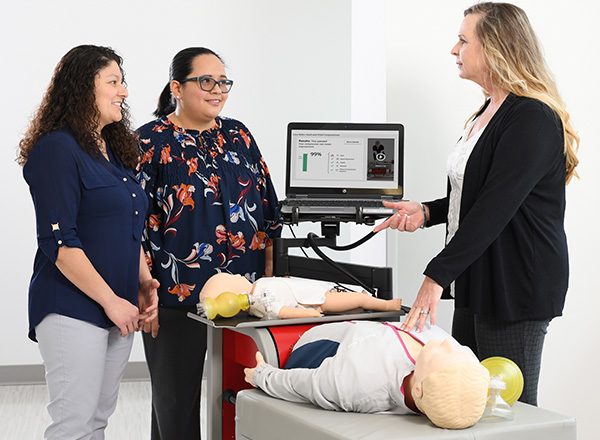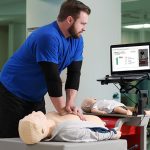As CPR Week comes to a close, we're sharing the stories of both cardiac arrest survivors and responders, and the profound impact that rapidly-administered CPR has had on their lives.
A bystander saved his coworker's life after watching the "Hands-Only CPR" video, produced by the American Heart Association. The video inspired him to act and ultimately saved a life.
A college student learned CPR on an American Heart Association CPR Kiosk during a layover at Dallas/Fort Worth International Airport. He had no idea he would use these skills to save the life of a fellow student only days later.
A 12-year old girl saved her dad's life after he suffered a sudden cardiac arrest at home. She had completed infant CPR certification, so with her existing skills and the guidance of emergency telecommunicators, she was able to save her father's life.
Nurse Michael Lovelace spent 30 years in his career teaching healthcare providers to perform lifesaving CPR. He had no idea that he was training the coworkers who would later save his life with high-quality CPR.
Low survival rates from sudden cardiac arrest is a public health crisis. CPR knowledge and competence are immeasurably important, and you have the power to make a difference. With the 559,000 sudden cardiac arrests that occur annually, make sure you are prepared to respond. Learn more about CPR training.








